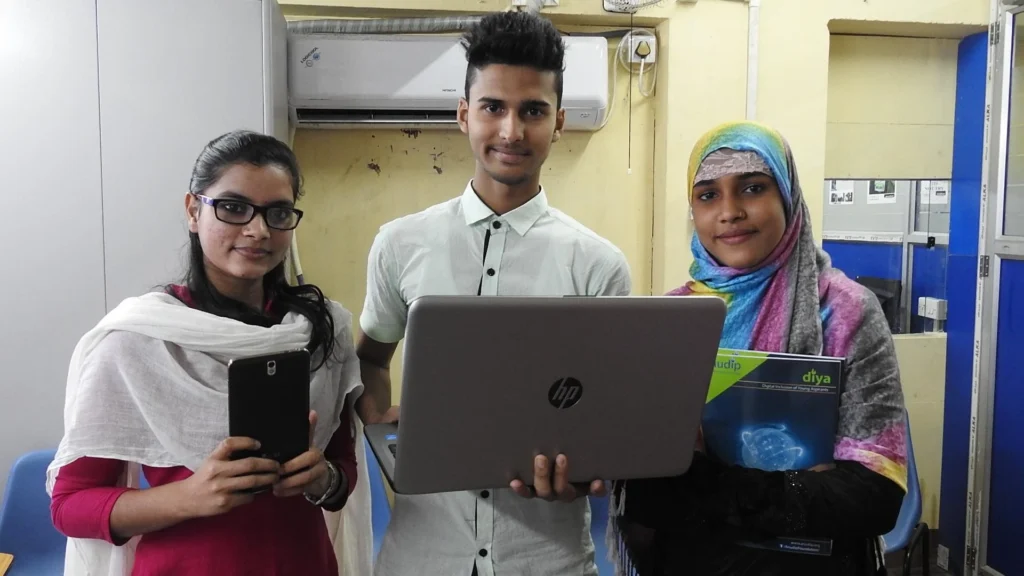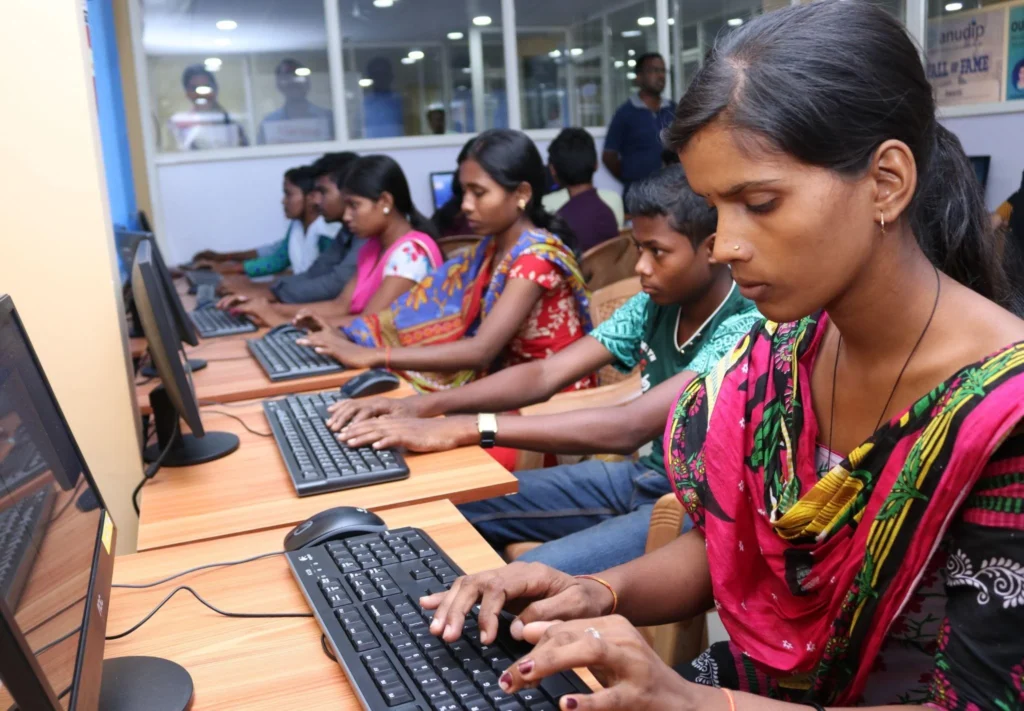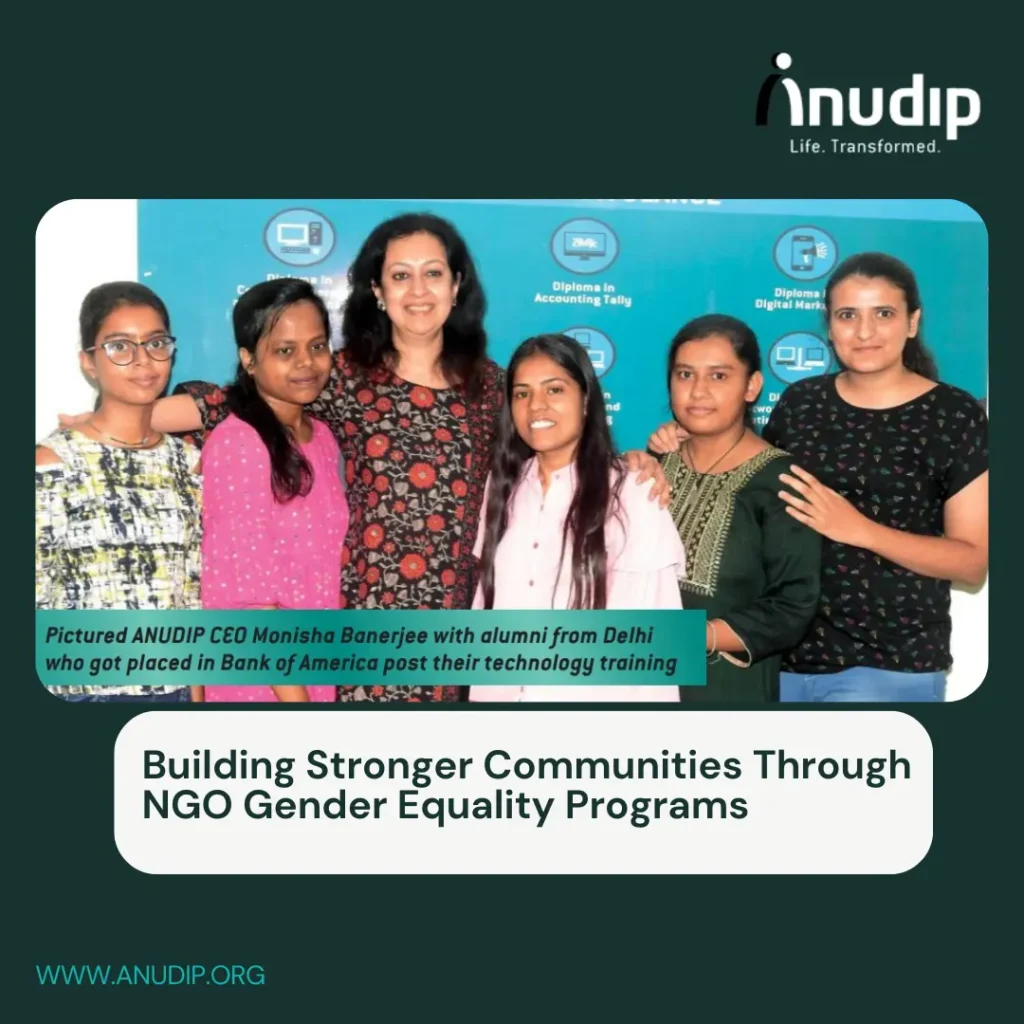What is the goal of SDG 5: Gender Equality?
The UN’s Sustainable Development Goal 5 (SDG 5) is a global framework. The core goal of this agenda is to achieve gender equality and empower all women and girls by 2030. This means eliminating all forms of discrimination; ending all forms of violence against women and girls; and assuring equal rights to opportunities and resources. Another aspect that defines the fifth goal is a commitment to which technology will play a role in improving the conditions of women…https://data.unicef.org/sdgs/
In India, there have been some gains made here. However, there are many challenges that remain. For example, women still have faced “double burdens” of unpaid care work. Further, women’s participation in the labor force continues to lag behind men’s participation. So, gender issues need action. and that action starts at the local level.
How do grassroots NGOs make a change on the ground?
Enter – grassroots NGOs. They are important for a simple reason. First and foremost, they work with communities directly. In other words, they know the local people. They understand the local issues. Indeed, they are often a bridge between large governmental programs and those that actually need these programs. As a result, during a 2024 expert group meeting on SDG 5, a report concluded that the progress was not enough, and identified a lack of local action as a constraint to many national efforts.
Moreover, grassroots NGOs can be flexible with their solutions. That is to say, they will not use a one-size-fits-all solution or plan. Instead, they develop real change with the community. Consequently, this is a very powerful way to build a program. It ensures that programs are in the evenings and long-lived.
What are the main strategies used by NGOs to empower women?
In relation to SDG 5, grassroots NGOs focus on three key areas. These strategies work. They help to empower women now—and for good.
- Training Skills for Economic Empowerment: First, NGOs provide skills. They teach women to use computers, code, and digital tools. This represents a direct reach of a key aspect of SDG 5: Target 5.b—to leverage technology to empower women. Ultimately, with these skills, women can secure good jobs and attain financial independence. This is advancement towards equity.
- Providing Mentorship and Leadership Skills: Second, NGOs provide mentorship.The training helps women be more confident – it teaches them to advocate for themselves and to be leaders. Thus, this is advancing SDG 5, Target 5.5 – to ensure women’s full and effective participation and equal opportunities for leadership. Many women trained by NGOs often go on to become trainers and are role models in their communities.
- Developing Secure Community Networks: Third, NGOs offer a safe space. They establish an entire network of support. Women can discuss their issues and learn from one another.This is particularly imperative for their mental and social health. Moreover, this counteracts gender-based violence which is a significant marker in SDG 5. In fact, when women have a strong support system, they’re more inclined to take a stand against injustice.
- Enhancing Access to Economic Resources: Fourthly, many NGOs help women to access economic resources. For example, they help them to open savings accounts and save money; and, access small loans to start or grow their business or economic position. This presents a direct step towards achieving SDG 5, Target 5.a.- Ensure equal rights to economic resources, as well as access to financial services, for women. Ultimately, when a woman controls her own money, she has more power.
- Creating Awareness and Advocating for Rights: Finally, and most importantly, NGOs create awareness. They educate the community on the importance of gender equity. They talk about women’s rights and help to change longstanding beliefs and social norms. Although this process to change is slow and tedious, it is important because it shapes a better environment for women and girls to live in.

In what way does Anudip Foundation’s initiative correspond to SDG 5?
Anudip Foundation is an excellent model of a grassroots NGO. In short, we are working on SDG 5 every day. We are part of the answer. Our programs are developed with SDG 5 targets in mind.
We have a basic mission: to empower youth from unserved communities. We do this by giving them digital skills to be market-ready. However, our work goes even further. For instance, over 50% of our learners are women. We work specifically with young girls to prepare them for jobs in tech. This, in turn, helps to reduce the digital gender gap.
Our curriculum includes more than coding. It also includes soft skills. We teach communication, problem-solving, and professionalism. Subsequently, this work builds their confidence. Our training develops a pathway for women towards real careers. As a result, a woman who finds a job working with Anudip changes her life. She gains respect, makes her own decisions, and becomes a leader. This is empowerment.
To support our impact and advance our work towards achieving SDG 5, please visit our website: https://anudip.org. Your support allows us to expand to more women and create a larger population of opportunity.

How can I contribute to NGO efforts for gender equality?
You can make a difference. First of all, you can learn about the issues. You can engage other people in discussion about gender equality. Second, you can also choose to support a grassroots NGO working on those issues. Your small contribution, even if it is small, will help educate a woman to help her initiate a new life. It will help an organization provide a scholarship or purchase a computer.
When you support Anudip, you are contributing to a more equal world. You are working towards the achievement of SDG 5. You are empowering women and young girls to be strong, independent, and successful. Ultimately, this is not just about achieving a goal, this is about the betterment of everyone.

